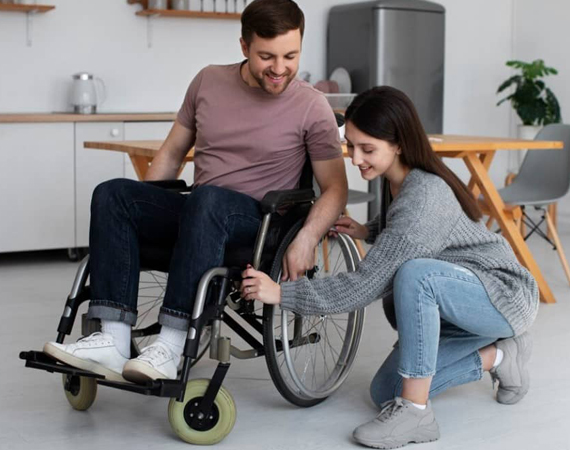Supported Accommodation Services under the National Disability Insurance Scheme (NDIS) in Australia are designed to provide individuals with disabilities access to safe, suitable, and supportive living environments. These services aim to promote independence, community inclusion, and quality of life for individuals who require assistance with daily living activities. Here’s a detailed description of Supported Accommodation Services under NDIS in Australia:
- Assessment and Individualized Planning: The process begins with a comprehensive assessment of the individual’s accommodation needs, preferences, support requirements, and goals. Based on this assessment, an individualized support plan is developed in collaboration with the individual, their family, and relevant stakeholders.
- Variety of Accommodation Options: Supported Accommodation Services offer a range of accommodation options tailored to the individual’s needs and preferences. This may include group homes, shared living arrangements, supported independent living units, host family placements, or specialized disability accommodation.

- 24/7 Support and Supervision: Individuals receive ongoing support, supervision, and assistance from trained support workers or disability support staff who are available around the clock. This ensures that individuals have access to support whenever they need it, including during emergencies or crises.
- Personal Care and Daily Living Support: Support workers assist individuals with personal care tasks such as bathing, dressing, grooming, toileting, medication management, meal preparation, eating, and household chores. They promote independence while providing necessary assistance based on the individual’s abilities.
- Healthcare Coordination: Supported Accommodation Services may involve coordinating healthcare needs, appointments, medication administration, accessing medical services, liaising with healthcare professionals, and managing health-related routines as required.
- Social and Recreational Activities: Individuals are supported in participating in social, recreational, and leisure activities both within the accommodation setting and in the community. This promotes social inclusion, friendships, engagement, and a sense of belonging.
- Life Skills Development: Support workers facilitate the development of life skills such as budgeting, shopping, cooking, laundry, cleaning, time management, transportation planning, communication skills, and decision-making to enhance independence and self-management abilities.
- Individual Choice and Control: Individuals have the opportunity to make choices and decisions regarding their accommodation, support preferences, daily routines, activities, and lifestyle. Supported Accommodation Services prioritize individual choice, autonomy, and dignity.
- Staff Training and Professional Development: Support workers undergo training, ongoing education, and professional development to ensure they have the skills, knowledge, and expertise to provide high-quality support, implement person-centered plans, and respond to individual needs effectively.
- Safety and Accessibility: Supported accommodations are designed to meet safety standards, accessibility requirements, and individualized adaptations to accommodate the specific needs of residents with disabilities. This includes accessibility features, safety equipment, emergency response plans, and risk management protocols.
Overall, Supported Accommodation Services under NDIS in Australia aim to provide a supportive, inclusive, and enabling environment for individuals with disabilities to live independently, participate in community life, build skills, and enjoy a fulfilling lifestyle while receiving the necessary support and assistance they require.
